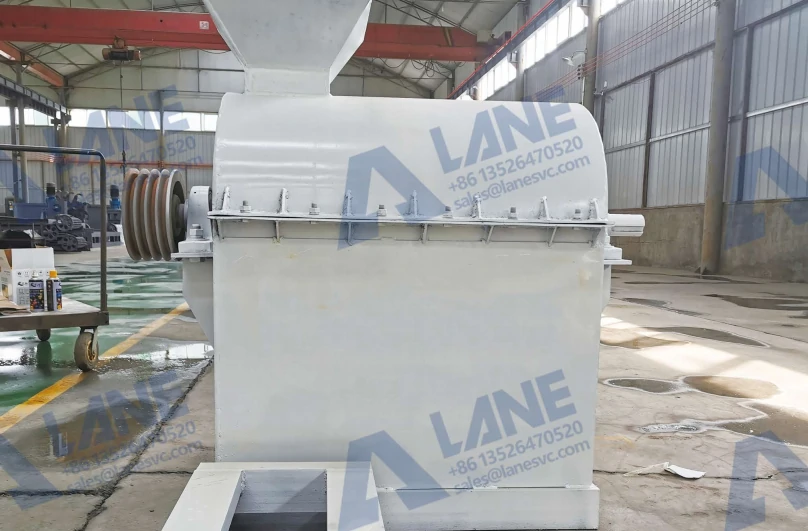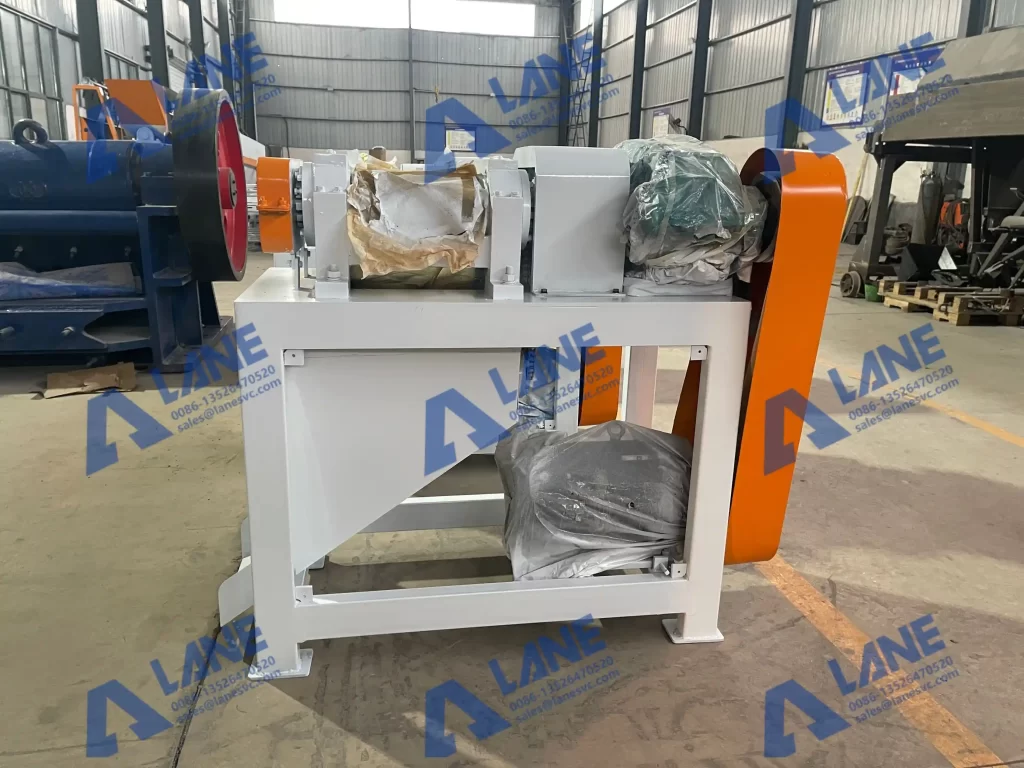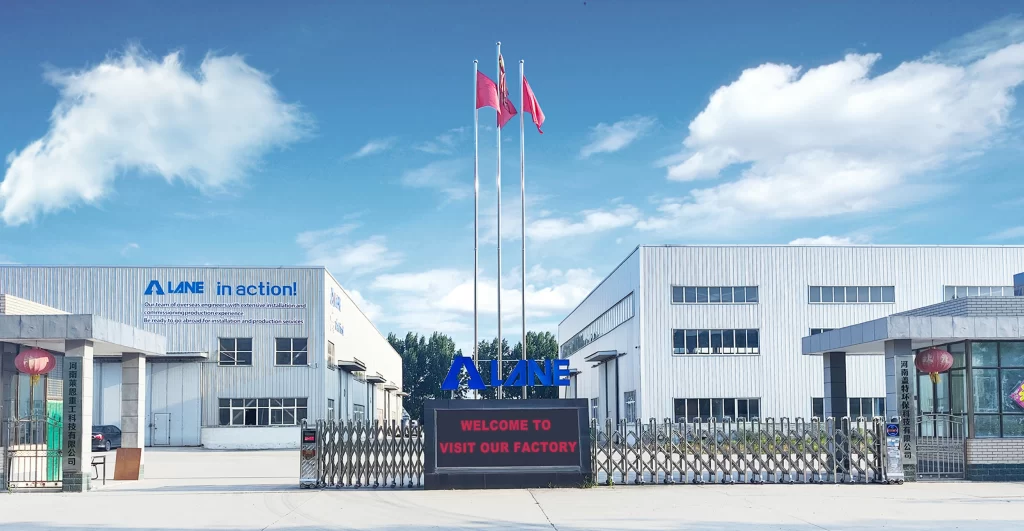The Value of Turning Animal Manure into Fertilizer
Turning animal manure into fertilizer is an innovative agricultural solution that transforms a disposal problem into a profitable and eco-friendly opportunity. Livestock and poultry farms generate millions of tons of manure annually, much of which goes to waste or creates environmental hazards. Converting this waste into nutrient-rich fertilizer not only reduces pollution but also creates a marketable product for domestic and international agriculture.
According to the latest market data, it is projected that by 2030, the global market size of organic fertilizers will reach 15.9 billion US dollars. This is attributed to the increasing demand for sustainable agricultural practices and the decreasing usage of synthetic fertilizers. Granular organic fertilizers are becoming increasingly popular due to their ease of application, high storage stability, and stable nutrient content.
Feasibility – Why This Approach Works
Turning animal manure into fertilizer is feasible for both small-scale farms and large agribusiness operations because:
| Factor | Insight |
| Abundant Raw Material | Cattle, poultry, and pig farms produce continuous supplies of manure. |
| Proven Technology | Established fertilizer production equipment ensures consistent product quality. |
| Government Support | Many regions offer subsidies for manure recycling to reduce environmental impact. |
| High Market Demand | Farmers seek eco-friendly fertilizers to meet organic certification requirements. |
| Strong Profit Margins | Organic fertilizer sells at higher prices compared to raw compost. |
In the EU, for example, farmers can receive grants for installing organic waste recycling systems. In the U.S., the USDA supports manure-to-fertilizer projects to promote sustainable agriculture.
How the Process Works – Step-by-Step
The process of turning animal manure into fertilizer follows a well-structured sequence, supported by specialized equipment at each stage. Here’s how it works:
1.Collection and Raw Material Preparation
Fresh manure is collected from livestock barns, poultry houses, or feedlots and transported to the processing site. Large debris such as stones, bedding straw, or plastic is removed using a rotary screen machine to ensure the raw material is clean and ready for further processing. This step ensures a smooth flow in the subsequent production stages.
2.Crushing for Uniform Particle Size
The pre-cleaned manure is fed into a semi-wet material crusher to break down clumps and create a consistent particle size. Uniformity at this stage is critical for effective composting and granulation, as it improves mixing efficiency and pellet quality.

3.Composting and Fermentation
The crushed manure is formed into long windrows or placed inside fermentation tanks. Using a crawler type compost turner or groove type compost turner, the material is regularly aerated to provide oxygen to the microbes, speeding up decomposition. During this process, internal temperatures naturally rise to 55–65°C, killing pathogens, parasite eggs, and weed seeds while preserving beneficial microorganisms.
4.Nutrient Blending and Moisture Adjustment
Once composting is complete, the material is transferred to a horizontal fertilizer mixer. Here, it can be blended with crop residues, humic acid, or additional nutrients such as nitrogen, phosphorus, and potassium. Moisture content is also adjusted to the optimal level for granulation—typically between 30–35%.
5.Granulation – Forming Fertilizer Pellets
The blended material enters the granulation stage. Depending on production needs and material characteristics, one of two methods is used:
Dry Granulation: A double roller granulator compacts the material into pellets without adding extra moisture, making it energy-efficient and suitable for medium-moisture compost.

Wet Granulation: A new type organic fertilizer granulator uses mechanical stirring and water to shape durable, high-density pellets ideal for higher-moisture materials.
6.Drying to Preserve Quality
Freshly granulated fertilizer is passed through a rotary drum dryer to reduce moisture content to around 10–15%. This step extends shelf life, prevents mold growth, and improves pellet strength.
7.Cooling to Stabilize Pellets
The hot pellets from the dryer are fed into a counter-flow cooler. Rapid cooling stabilizes the pellet structure, prevents caking during storage, and ensures the product is safe to bag immediately.
8.Screening for Consistent Product Size
A rotary drum screener separates fine powder and oversized pellets from the finished product. Oversized pellets are crushed and returned to the granulator, while fine powder is recycled into the mixing stage.
9.Packaging for Storage and Sale
Finally, the uniform fertilizer pellets are weighed and packed using an automatic fertilizer packaging machine. Bags are sealed to protect against moisture and contamination, ready for transport to farms or distribution centers.
Applications – Where This Fertilizer Is Used
Turning animal manure into fertilizer produces a nutrient-rich product that is highly versatile and supports a wide range of agricultural applications. Its organic matter content, slow nutrient release, and pathogen-free quality make it an essential input for sustainable farming systems worldwide.
Field Crop Farming – Farmers use turning animal manure into fertilizer products for wheat, corn, rice, and other grains. This improves soil aeration, boosts nutrient availability, and enhances root development for higher yields.
Vegetable and Fruit Cultivation – Ideal for tomatoes, cucumbers, peppers, grapes, and orchard crops. Fertilizer made by turning animal manure into fertilizer enriches soil, improves water retention, and enhances the taste and shelf life of produce.
Pasture and Forage Grasslands – Supplies balanced nutrition to promote healthy grass growth, improving feed quality for dairy cattle, beef cattle, sheep, and goats.
Greenhouse Agriculture – Odor-free and pathogen-free pellets from turning animal manure into fertilizer are safe for controlled farming environments and reduce disease risk.
Organic Certified Farms – Complies with organic farming standards in many regions, giving farmers access to premium markets and higher returns.
Land Restoration and Landscaping – Rehabilitates degraded soils in mining areas, construction zones, and public green spaces, adding organic matter and long-lasting fertility.
Global Case Studies of Turning Animal Manure into Fertilizer
LANE has successfully delivered turning animal manure into fertilizer projects worldwide, helping farms, cooperatives, and agribusinesses improve soil health, increase yields, and create new income streams.
Case Study 1 – Organic Vegetable Farm in Europe
A medium-sized organic vegetable farm in the Netherlands wanted to adopt a sustainable solution for improving soil fertility. In 2022, they implemented a LANE turning animal manure into fertilizer production line capable of processing 3 tons/hour of cow and chicken manure into premium organic fertilizer.
After one growing season:
Soil organic matter increased by 28%.
Vegetable yields rose by 15%, with improved tomato size, flavor, and shelf life.
The farm began selling surplus fertilizer to nearby growers, generating €45,000 in extra annual income.
Case Study 2 – Dairy Cooperative in South America
In Uruguay, a dairy farmers’ cooperative with 12 members faced increasing manure management costs and environmental compliance challenges. In 2023, they invested in a LANE complete turning animal manure into fertilizer production line—including a hydraulic crawler type compost turner, double roller granulator, and automatic packaging machine.
Results after 8 months:
Reduced manure disposal costs by 90%.
Produced a consistent supply of organic fertilizer for their forage fields, improving feed quality.
Expanded operations to export bagged organic fertilizer to Argentina, creating a new revenue stream worth $150,000/year.
| Location | Project Type | Capacity | Key Equipment | Results |
| Netherlands | Organic Vegetable Farm | 3 tons/hour | Hydraulic Crawler Type Compost Turner, Semi-Wet Material Crusher, Rotary Drum Dryer | +28% soil organic matter, +15% crop yield, €45,000 annual profit |
| Uruguay | Dairy Farmers’ Cooperative | 5 tons/hour | Hydraulic Crawler Type Compost Turner, Double Roller Granulator, Auto Packaging Machine | -90% manure disposal cost, $150,000/year new revenue |
| Poland | Poultry Farm | 4 tons/hour | Trommel Screen Machine, Horizontal Mixer, New Type Organic Fertilizer Granulator | Reduced composting time by 67%, improved local crop yields |
| Vietnam | Rice & Vegetable Cooperative | 2 tons/hour | Groove Type Compost Turner, Double Roller Granulator, Cooling System | Boosted rice production by 20%, reduced chemical fertilizer use |
| Oman | Date Palm Plantation | 6 tons/hour | Hydraulic Crawler Type Compost Turner, Rotary Dryer, Automatic Bagging Machine | Improved palm fruit yield by 18%, enhanced export quality |
LANE – Your Partner in Turning Animal Manure into Fertilizer
LANE provides turnkey solutions for turning animal manure into fertilizer, offering complete system design, manufacturing, installation, and training tailored to each client’s needs.
Customizable Capacity: Whether you operate a small family farm or a large-scale commercial facility, LANE can design production lines ranging from 5,000 to 200,000 tons per year. Each system is carefully engineered based on manure type, moisture content, and desired fertilizer specifications. We also offer modular upgrades, allowing you to start small and expand your capacity as your business grows—ensuring cost efficiency without compromising quality.
Comprehensive Equipment Lineup: From semi-wet material crushers, horizontal mixers, and hydraulic crawler type compost turners, to double roller granulators, rotary drum dryers, and automatic packaging systems, LANE provides every piece of equipment needed for a seamless turning animal manure into fertilizer process.
Global Installation & Support: With projects successfully delivered in over 20 countries, LANE offers on-site installation, operator training, spare parts supply, and long-term technical support—ensuring reliable, trouble-free operation.
Certifications: All equipment meets CE, ISO, and other international quality standards, assuring customers of safety, reliability, and compliance with regulatory requirements.
Turning animal manure into fertilizer is a time-tested, environmentally friendly solution that turns agricultural waste into a profitable resource. It benefits farmers by lowering manure disposal costs, enriching soil fertility, and boosting crop yields, while also reducing environmental pollution and contributing to a sustainable agricultural system. With the global shift toward organic and sustainable farming, high-quality organic fertilizer is becoming a premium product in both domestic and export markets. LANE’s advanced turning animal manure into fertilizer production lines, technical expertise, and proven global experience make it easier for farms, cooperatives, and agribusinesses to convert waste into profit—enhancing soil health, increasing harvests, and building a greener future for generations to come.

For more details, please feel free to contact us.
Henan Lane Heavy Industry Machinery Technology Co., Ltd.
Email: sales@lanesvc.com
Contact number: +86 13526470520
Whatsapp: +86 13526470520